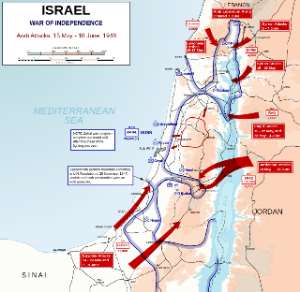
Submitted for consideration to the United Nations Security Council
The Israel–Palestine conflict remains a festering wound in the international order—one that has defied decades of negotiations, global resolutions, and well-intentioned mediation. It is a crisis born of displacement and denial, but perpetuated just as surely by strategic paralysis across regional leadership. The time has come for Arab states and their allies to undertake a necessary course correction—one rooted not in concession, but in clarity.
I. Beyond Rhetoric: A Reckoning with Regional Strategy
For over seventy years, successive generations of Arab leaders have framed their engagement through maximalist opposition and moral indictment. Yet this posture—untethered to evolving geopolitical realities—has delivered neither peace nor progress. The failure to recalibrate has deepened the impasse, left the Palestinian people politically fragmented, and forfeited diplomatic capital in multilateral arenas such as this Council.
What has decades of rejectionism yielded? The entrenchment of illegal settlements, repeated wars in Gaza, and the loss of moral leadership on the global stage. To stand with Palestine must no longer mean standing still.
II. Accountability is Mutual: Reframing the Pursuit of Justice
This is not a defense of Israeli policy—many of which remain in violation of international law and the norms this Council was created to uphold. But a just peace requires hard introspection, including within Arab capitals. One cannot demand accountability of others while ignoring the inertia, infighting, and ideological rigidity within one’s own camp.
The credibility of this Council—and of any proposed peace framework—depends on a willingness to examine all forms of obstruction. True justice is impartial. It neither romanticizes resistance nor absolves impunity.
III. The Abraham Accords and the Possibility of Leverage
The normalization agreements between Israel and several Arab states—while controversial—offer lessons in tactical engagement. They signal that influence is now wielded not through isolation but integration. Arab states at the table with Israel possess leverage previously unavailable: to demand humanitarian access in Gaza, to revive a viable path to statehood, and to ensure the international community no longer relegates Palestinian aspirations to diplomatic afterthought.
Those who choose silence or moral grandstanding risk diminishing their role in shaping a future settlement.
IV. A Path Forward: Strategic Realism in Service of Peace
To Arab diplomats and policymakers: this is the moment to forge a new doctrine—one that accepts painful truths, prioritizes outcomes over optics, and reclaims leadership through principled pragmatism. That doctrine must include:
Internal Reform: Encourage democratic renewal and unity within Palestinian political structures; Regional Responsibility: Share the burden of humanitarian recovery and governance capacity-building in the territories; Moral Diplomacy: Use bilateral relations with Israel as instruments to insist on human dignity, not performative disengagement; Multilateral Re-engagement: Actively shape the UN’s Middle East policy frameworks rather than react from the sidelines.
V. Courage Over Continuity
The future of the region—and indeed the legitimacy of this Council—depends not merely on condemning violence, but on cultivating peace. That requires the courage to act differently than before. To the Arab world: peace will not come through perpetual resistance, nor through reluctant diplomacy. It will come when leadership dares to lead, not just lament.
Let history not record that we spoke with passion, but failed with purpose.
Retired Senior Citizen
Teshie-Nungua
[email protected]


